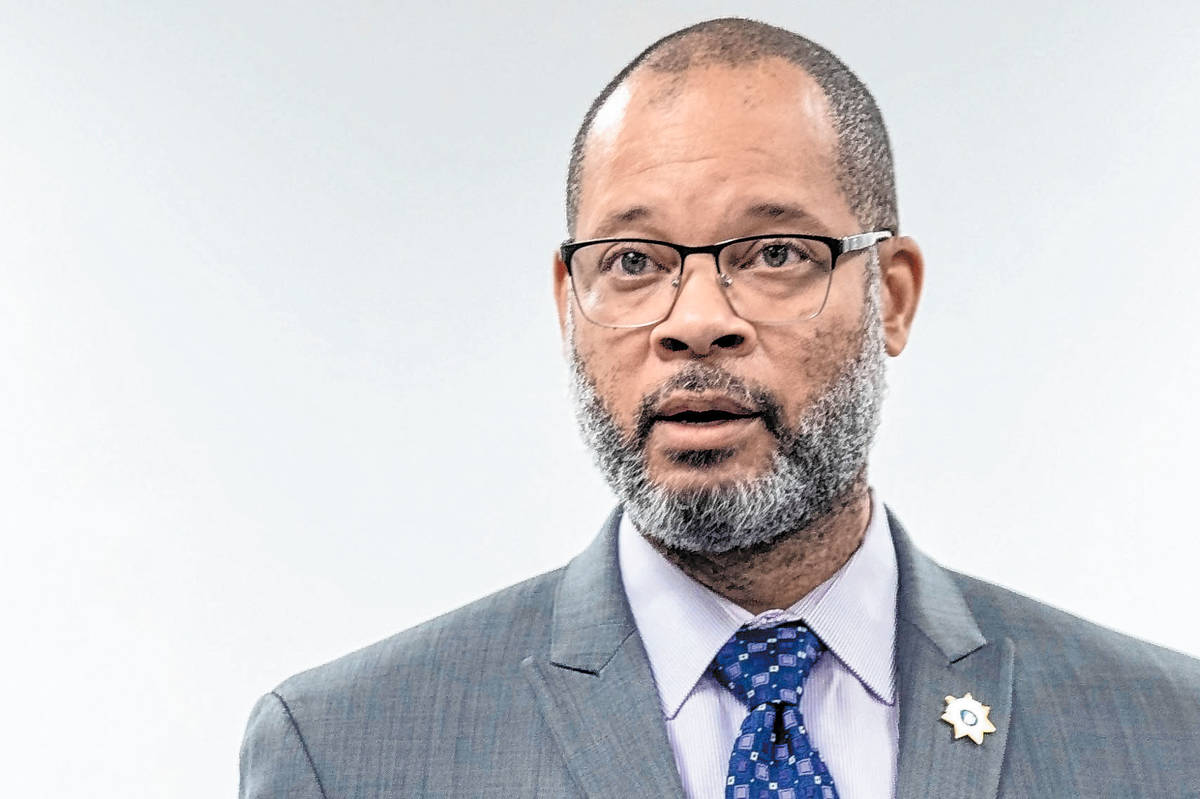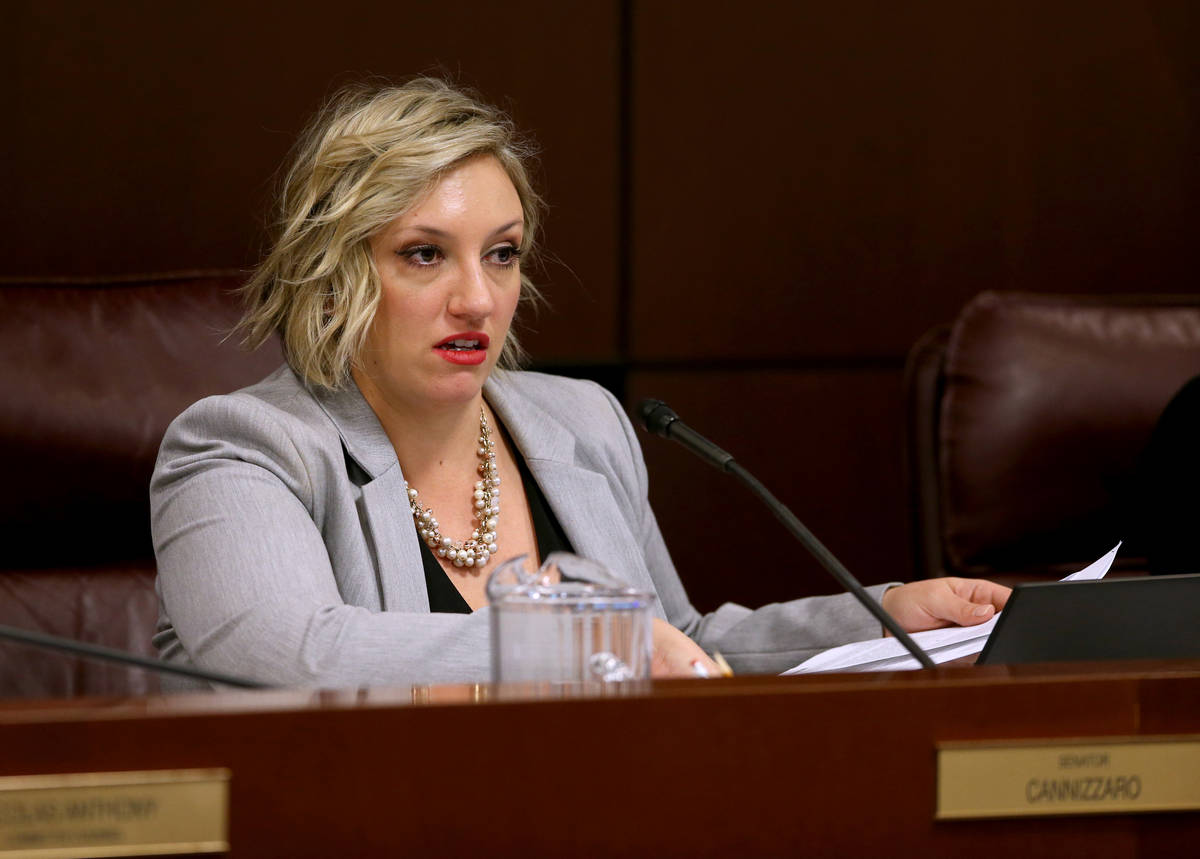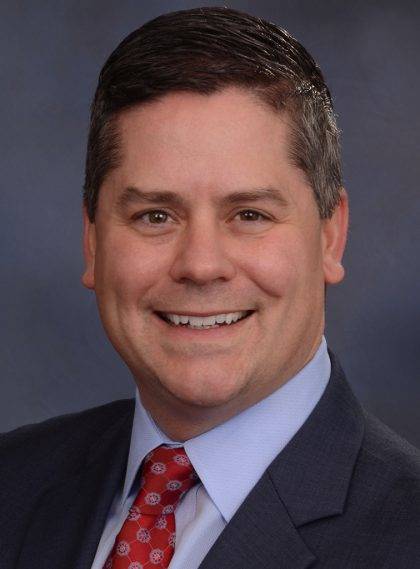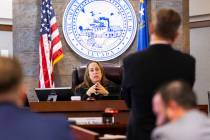Nevada lawmakers might keep some police misconduct files secret



Lawmakers around the country have pushed to make police internal affairs records public, but the Nevada Legislature is considering a bill that would close off key investigative documents.
Assembly Bill 58 would give the Nevada attorney general power to investigate patterns of civil rights complaints in local police agencies and would require him to release a report. But the legislation includes a provision that “the identity of a witness, any procedure, testimony taken, document or other tangible evidence produced” be exempt from Nevada’s public records laws.
Richard Karpel, executive director of the Nevada Press Association, said the legislation would be a step backward for transparency in police misconduct inquiries.
“AB58 would, in most cases, shroud pattern and practice investigations in secrecy,” he said in an email exchange. “The amended version of the bill would require the Attorney General to issue a report about the investigations but would still hide the underlying evidence from public view. That’s a recipe for distrust and conspiracy theories.”
The bill is sponsored by the Assembly Committee on Judiciary, but its chairman, Steve Yeager, declined comment, sending questions to Attorney General Aaron Ford, at whose request the bill was introduced.
“A lack of confidentiality would undoubtedly lead to a chilling effect on people willing to come forward to disclose information,” Ford told the committee on March 16.
Ford’s chief of staff, Jessica Adair, said the bill would not stop the requirement for police agencies to produce records.
“AB58 does not change any existing public records law as it applies to law enforcement agencies,” she said in an emailed statement. “Agencies still must disclose their records subject to public records law, whether or not those documents are also used in a pattern and practice investigation.”
State law and disclosure
Police accountability nationwide is under intense scrutiny amid growing allegations of police abuse or misconduct, and the landmark trial of former Minneapolis police officer Derek Chauvin, who was found guilty of murder in the death of George Floyd this week.
In Nevada, state law does not exempt internal affairs files from disclosure under public records laws, but police departments have cited court rulings balancing the public’s right to know with employee privacy to withhold the records.
This year, about 160 bills in 40 states have been introduced addressing police data collection and transparency, according to the National Conference of State Legislatures.
ACLU of Nevada Executive Director Athar Haseebullah said Nevada lawmakers should join the national trend of requiring agencies to release internal affairs records. “I think what we have to do is, we really have to push … from a policy perspective, for increased transparency,” he said.
Lawmakers in this and past sessions have passed or proposed other legislation impacting police misconduct and use of force. This session the Senate passed a bill that would require police to use de-escalation techniques and identify themselves before using force. On April 14, the Senate passed SB212, which requires officers to use the least amount of force necessary and prohibits the indiscriminate use of nonlethal rounds during protests. The bill moved to the Assembly.
2019 bill
In 2019, the Legislature made it more difficult to investigate police misconduct by limiting the time for an investigation and stopping supervisor questioning if there is going to be a misconduct investigation, under what is commonly known as the Police Officer Bill of Rights.
But in last year’s special legislative session, which happened after George Floyd was killed in Minneapolis, spawning protests in Nevada and around the world, lawmakers reversed many of the provisions of the 2019 law, which was sponsored by Senate Majority Leader Nicole Cannizzaro. A provision in the 2019 law that wasn’t reversed: a prohibition on releasing officers’ photographs unless they are charged with crimes.
Las Vegas police union President Steve Grammas slammed Senate Bill 2, which he said removed police protections to satisfy law enforcement critics.
“I think it was disgusting that Sen. Cannizzaro failed to back law enforcement,” he said. “It was a 1,000 percent related to the political climate and what was happening across country.”
Cannizzaro, a Las Vegas Democrat and prosecutor with the Clark County district attorney’s office, did not respond to repeated requests for comment. The Las Vegas police union endorsed Cannizzaro’s Republican rival, April Becker, in the November election, but Becker narrowly lost that race.
Contact Arthur Kane at akane @reviewjournal.com or at 702-383-0286. Follow @ArthurMKane on Twitter.
























